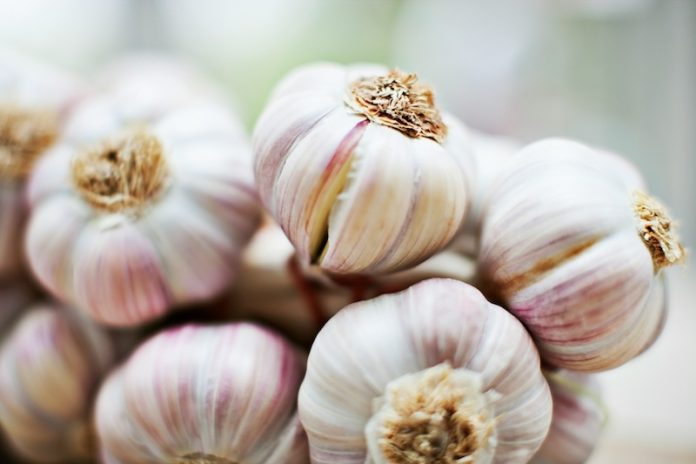
Garlic isn’t just a flavorful ingredient in your favorite dishes; it’s also a powerful natural remedy that has been used for thousands of years to support health.
Modern science now confirms that garlic can play an important role in preventing chronic heart diseases like high blood pressure, heart attacks, and strokes.
Packed with unique compounds, garlic helps keep our hearts strong and healthy, and it’s an easy addition to any diet.
Garlic contains a special compound called allicin, which is released when garlic is chopped, crushed, or chewed. Allicin is responsible for garlic’s strong smell, but more importantly, it’s what makes garlic so good for the heart.
This compound has been shown to lower blood pressure, reduce cholesterol, and protect blood vessels, all of which lower the risk of heart disease.
Let’s start with blood pressure, one of the biggest risk factors for heart disease. High blood pressure puts extra stress on the heart and blood vessels, increasing the chances of a heart attack or stroke. Research shows that garlic works as a natural remedy to lower blood pressure.
A 2016 study published in the journal Integrated Blood Pressure Control found that garlic supplements significantly reduced blood pressure in people with hypertension. In some cases, garlic was as effective as standard blood pressure medications – without the side effects.
Another way garlic helps protect the heart is by lowering cholesterol levels. Cholesterol is a fatty substance in the blood, and having too much “bad” cholesterol (LDL) can lead to plaque buildup in arteries, blocking blood flow to the heart.
A review of studies in Nutrition Reviews found that regular garlic consumption reduced LDL cholesterol levels by 10-15%. Garlic also helps maintain “good” cholesterol (HDL), which supports heart health by clearing out excess fat in the blood.
Garlic also has anti-inflammatory and antioxidant effects, which are crucial for heart health. Chronic inflammation and oxidative stress damage blood vessels and contribute to heart disease.
The antioxidants in garlic help neutralize harmful molecules in the body, reducing inflammation and protecting the heart.
A study published in The Journal of Nutritionshowed that garlic improved the flexibility of blood vessels and reduced oxidative stress in people at risk for heart disease.
Garlic can even help prevent blood clots, which are dangerous because they can block blood flow to the heart or brain, causing a heart attack or stroke.
Garlic has natural “blood-thinning” properties, which means it can prevent platelets (small blood cells) from sticking together and forming clots. This makes it a helpful natural tool for keeping blood flowing smoothly.
So, how much garlic do you need to see these benefits? Many studies recommend eating about 1-2 cloves of fresh garlic a day, or taking garlic supplements like aged garlic extract if the flavor is too strong.
Fresh garlic tends to have the highest levels of allicin, so crushing or chopping garlic before eating it helps release this heart-healthy compound. Cooking garlic reduces its benefits slightly, but it’s still good for your health.
Garlic is not only powerful but also easy to add to your diet. You can mix it into soups, stir-fries, sauces, or salads. If you don’t like the taste, garlic supplements are widely available and can be a good alternative.
In summary, garlic is a natural superfood that can help prevent chronic heart diseases by lowering blood pressure, reducing cholesterol, fighting inflammation, and keeping blood flowing smoothly.
Its heart-protecting benefits are backed by years of scientific research, making it an affordable and simple way to improve your health.
By adding a little garlic to your meals or taking garlic supplements regularly, you’re giving your heart the care it deserves – all with one small, powerful ingredient. So next time you’re in the kitchen, remember: a clove of garlic a day can help keep heart disease away.
If you care about heart health, please read studies that vitamin K helps cut heart disease risk by a third, and a year of exercise reversed worrisome heart failure.
For more information about heart health, please see recent studies about supplements that could help prevent heart disease, stroke, and results showing this food ingredient may strongly increase heart disease death risk.
Copyright © 2024 Knowridge Science Report. All rights reserved.





